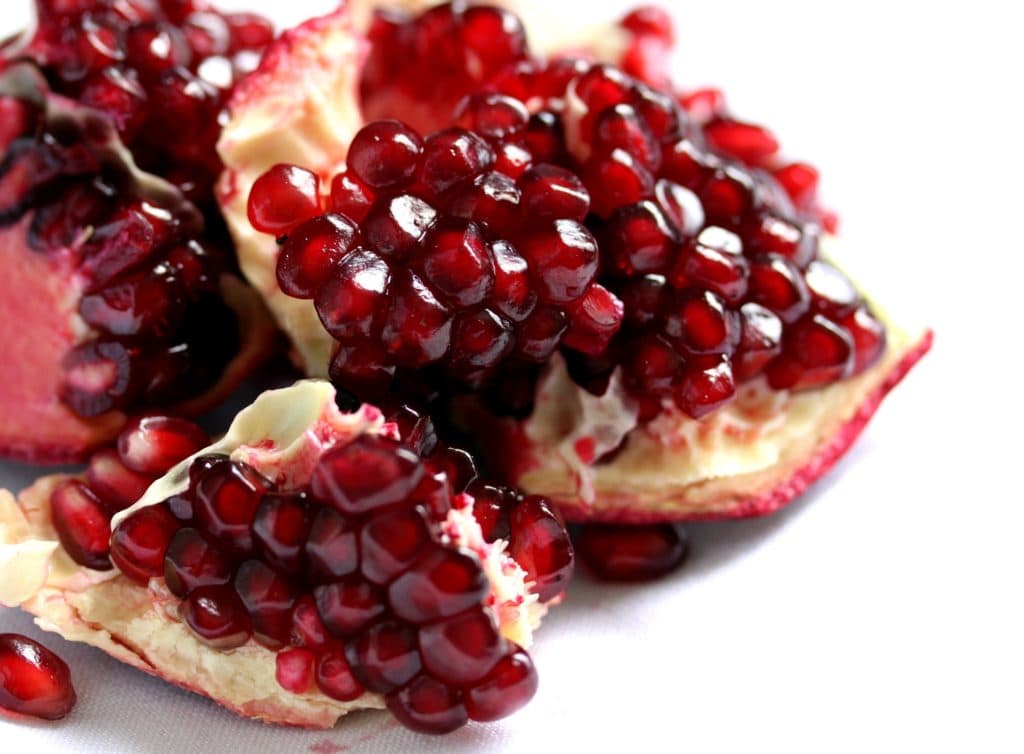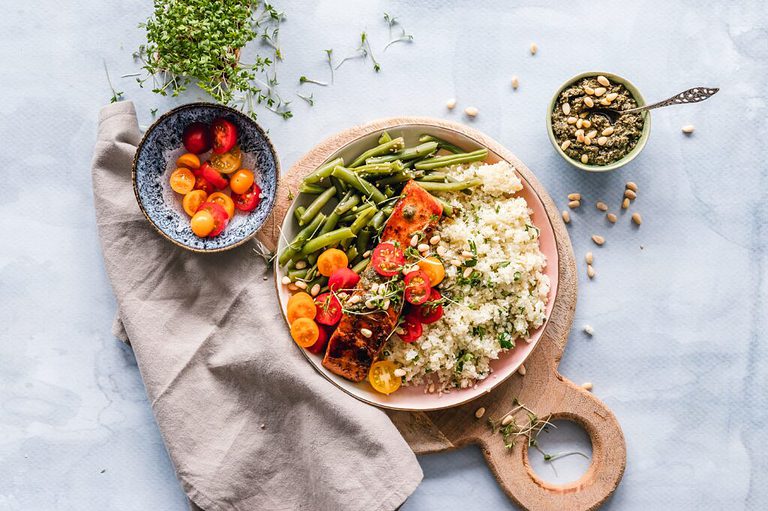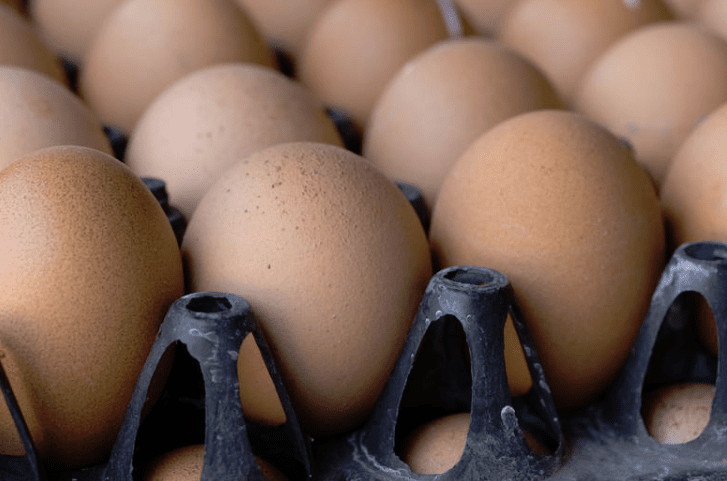If you’ve dabbled even a little bit into the fertility world or the TTC (trying to conceive) community, you would have heard some classic fertility foodie hacks to help sperm or eggs stick after fertility treatment, or just to boost fertility in general.
As dietitians with a special interest in fertility nutrition, we hear about these often and whilst these are often really nutritious foods, the evidence behind them is important so you’re not investing too much hope into these foods in helping to get you or stay pregnant!
Pineapple Core
This one is a classic in the fertility world, eating pineapple especially pineapple core is so popular due to its claims around helping thicken lining and help assist in the implantation of the embryo into the uterine lining that it has become the symbol of the fertility community!
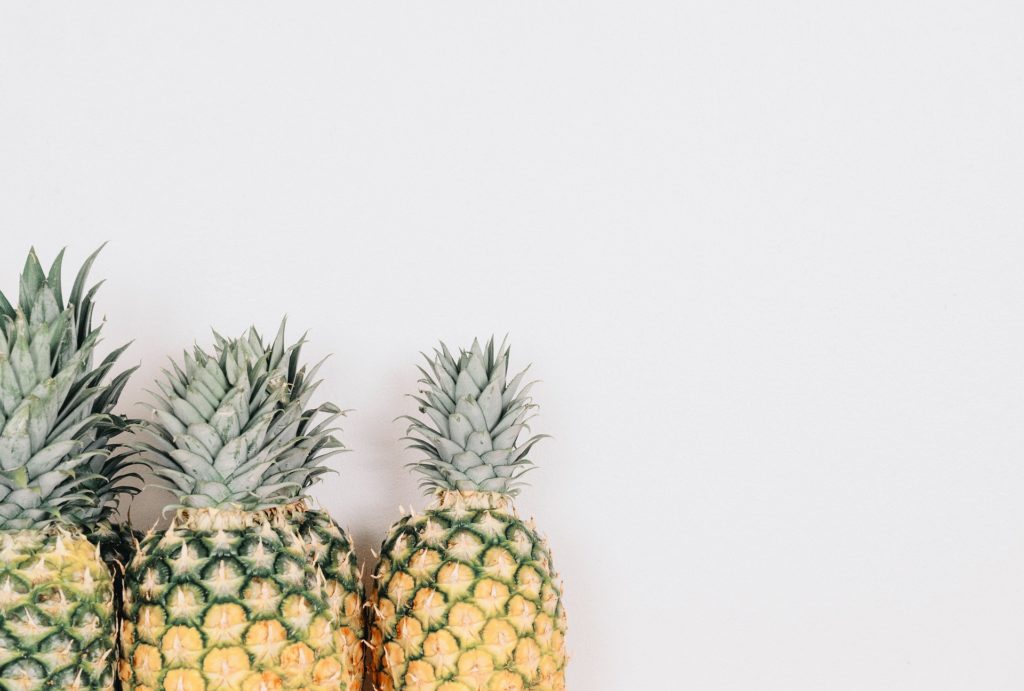
The reason why pineapple is heralded by many is that it contains a unique enzyme called bromelain, which is actually a protein-digesting enzyme, that is claimed to help thicken the lining and acts as a very mild blood thinner aiding blood flow to the area, which is seen to be beneficial.
Whilst there are no scientific studies out there showing that it does in fact help, pineapple is a nutritious fruit and offers a wide variety of nutrients including vitamin C, B vitamins, magnesium, manganese and potassium plus some fibre too! Don’t go overboard, especially on pineapple tinned in juice which can quickly add up to your daily sugar totals.
The recommended amount on some websites is to consume 5 pineapple rounds for 5 days after embryo transfer to help baby stick, so that can be incorporated into your 2-3 serves of fruit daily.
Want to know what to eat whilst TTC? Check out our Mediterranean-inspired fertility meal plans for men and women designed by an expert fertility dietitian & nutritionist
Pomegranate Juice
This dark red nectar is made from the pomegranate fruit which once praised a symbol of fertility in ancient Persia. Rich in antioxidants and micronutrients like vitamin C, folate, vitamin K is meant to help boost blood flow and generally has anti-inflammatory properties.
Some research has been done on pomegranates in men which showed that consumption before ejaculation was associated with more motile (i.e. moving) sperm (Fedder et al., 2014).
For women, there is no scientific evidence about it helping your reproductive potential, but the recommended dosage is to consume 250 mL (or 1 cup) of 100% pomegranate juice daily throughout your cycle to improve blood flow. 250 mL of juice daily is above and beyond what we would consider reasonable, about 1/2 cup or 125 mL of fruit juice would be considered a serve of fruit on occasion, not daily. This is likely going to contribute to excess energy and (although natural) sugars in the diet.
There is some caution for those on blood thinners, or taking certain medications due to a potential interaction.
Whilst there is little evidence at this time showing the benefit of including such high amounts of pomegranate juice for fertility, it is likely to cause little harm (of course in the absence of the above conflicts) if consumed in small quantities and less regularly.
Beetroot
Another deep red coloured plant, beetroots are a root vegetable heralded in the sports nutrition world for their impact on nitrates which helps our bodies produce Nitric Oxide (NO), which helps dilate our blood vessels and improve blood flow.
Again, improved blood flow seems to be a common theme here.
Beets also are packed with fibre loads of micronutrients especially folate, potassium, vitamin C and manganese as well as some iron and antioxidants coming from its deep red colour.

Again, there are no scientific studies that have looked at whether these claims are true, the theory does check out and if this is a way to get you eating more fruit and veg before and after your IVF transfer or other fertility treatments, then I am all for it!
Beetroot are one of our 6 favourite foods to include in the two-week wait to enhance implantation.
Want to learn what the other 5 foods are?
Discover The Key Foods & Recipes for Embryo Implantation
with The Dietologist’s Food For Implantation eGuide
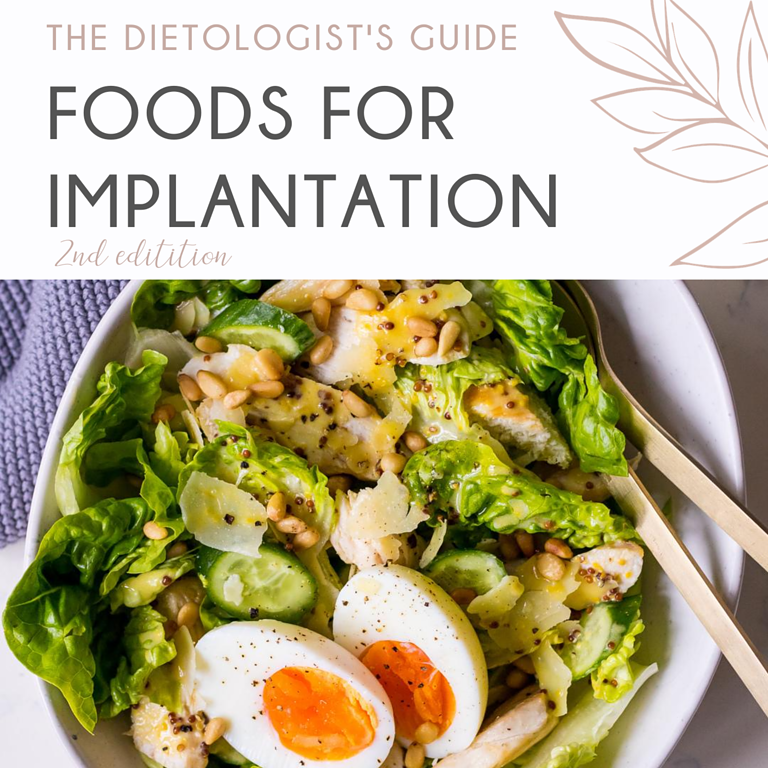
This guide also includes recipes designed to enhance your implantation outcomes during the two week wait (between ovulation and pregnancy test). All for just $37 AUD or $25 USD. Download your copy today.
Brazil Nuts
Brazil nuts are packed with the mineral selenium, and just 1 brazil nut per day helps you reach your daily needs of 70-80 mcg. Selenium is a mineral that is found in many different foods, but it varies depending on the soil.
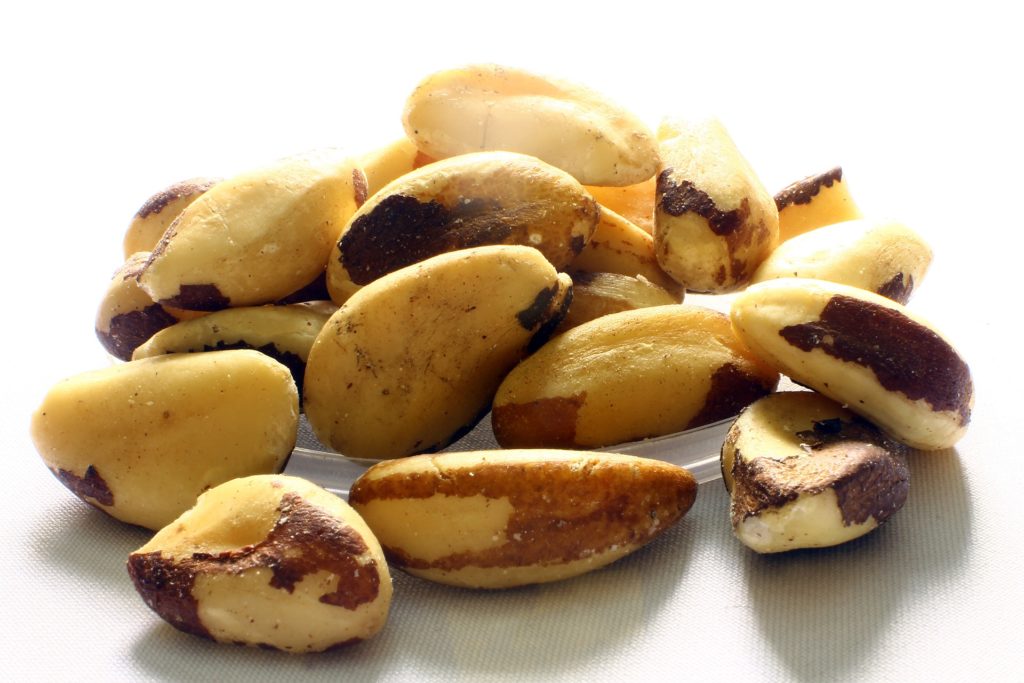
Selenium functions a lot like an antioxidant helping to protect your egg and embryo from oxidation and DNA damage (Ceko et al., 2015).
We don’t know much beyond this at the moment, but throwing a brazil nut into your smoothie or into your mixed nuts as an arvo snack is not a bad idea at all!
So, whilst all these foods are really nutritious whether you’re eating them for fertility purposes or not, the jury is still out on whether they are ACTUALLY helping that embryo stick! It is important to focus on your nutrition before and after you conceive so not only are you giving yourself the best chances of conception success but you are also starting off your pregnancy and your baby on the right foot!
Grab our scientifically backed strategies that we use as fertility dietitians to enhance our clients chances of implantation success inside Foods for Implantation today, just $37 AUD/$25 USD, available to download now.

